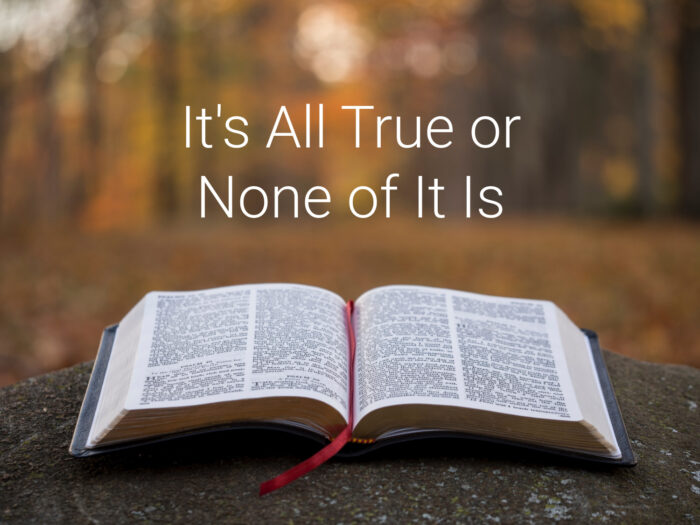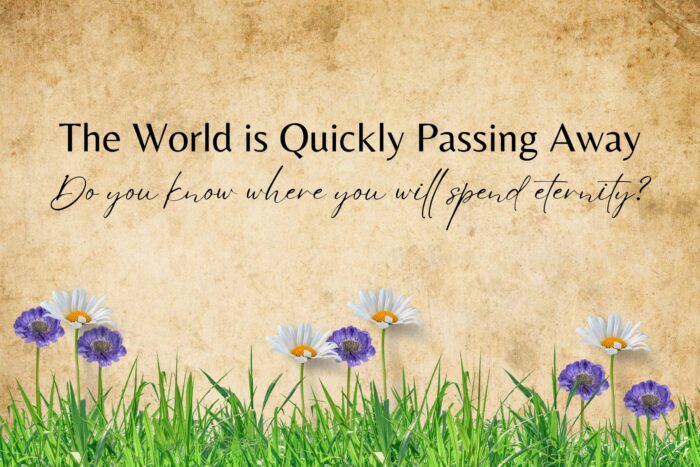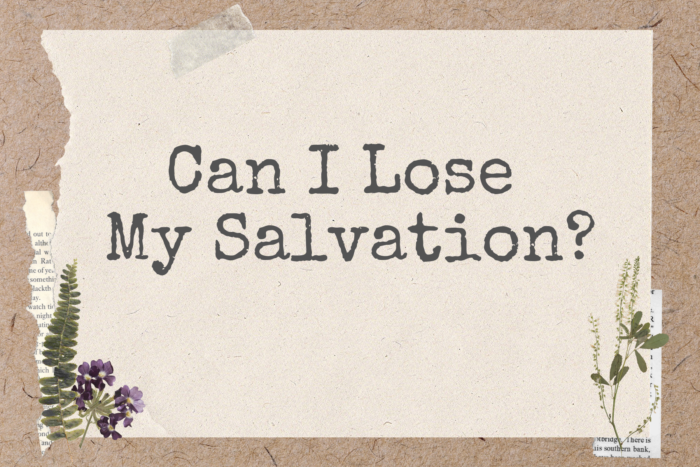In the Light of His Word
Last week I was reading a story that contained a father figure that used the Bible as a weapon. The husband/father would shout Bible verses as he beat his wife and children. A few days later I watched the movie, Jane Eyre, and her school master was the exact same way. I am also currently reading the biography of a woman who was one of Brigham Young’s wives (Mormon leader). He, too– a wicked, wicked man–used the Bible to his own advantage, leaving a path of destruction and violence behind him.
All of these men used select Bible verses without context to scar people forever. Never mentioned by any of these men was the Gospel or any of the verses that talk about the love and joy found in the scriptures. Many men (and women, too), found in positions of leadership, have used and abused scripture for their own intentions and purposes throughout history. They are still doing this today.
I’ve been reflecting on this for awhile now. No wonder there are so many people unenamored with and disinterested in the whole of scripture. The religion that went by the name of Christianity for so many precious children was a religion of rules and laws devoid of love.
This is probably why so many adults, growing up in this kind of church or home, are prone to follow the false religion that goes by the same name that only focuses on the love of God. It is a swing in the opposite direction to the extreme. Some of them leave Christianity altogether, searching for peace in a different religion or even in denying God’s existence.
All false teaching that claims to be a branch of Christianity (Mormonism, Roman Catholicism, etc.) always stems from this ripping of verses out of context. Legalism (must do certain things in order to be saved) is no different.
Legalism is an EVIL false doctrine and its victims are countless.
But let’s remember this important fact: True salvation and wanting to follow Christ because we love Him leads to a desire to turn from the world and remove sin. It just does. It is part of the wonderful transformation in our lives. This is not legalism. This is being saved and becoming a “new creature”, just as we are promised (2 Corinthians 5:17).
Someone who professes to be a Christian and yet loves their sin and the world will always cry “legalism” if a fellow believer even hints at their desire to live a more pure and holy life. Because of this dynamic, I rather doubt that most Christians even understand what legalism really is.
How important that we realize that true legalism is ugly and God hates it. It puts the burden of being saved and staying saved on us. And what a heavy burden that is! I am so thankful for Ephesians 2:8-9 (some of my favorite verses in the whole Bible)–
For it is by grace you have been saved, through faith—and this is not from yourselves, it is the gift of God— not by works, so that no one can boast.
Works will not save us and they will not keep us saved. In fact, there is not even one thing we can do to save ourselves. Thank God we are saved by Christ’s sacrifice on the cross and kept by Him for all eternity. Oh, how I love these verses I came across as I studied Revelation 1 a few weeks ago. Just read these incredible verses–
And from Jesus Christ, who is the faithful witness, and the first begotten of the dead, and the prince of the kings of the earth. Unto Him that loved us, and washed us from our sins in His own blood, And hath made us kings and priests unto God and his Father; to Him be glory and dominion for ever and ever. Amen. (Revelation 1:5-6)
He loves us and He freed us from our sins by His blood. He has no intention of ever letting us go! (John 10:28-29)
I was talking with someone the other day about how the culture is so obsessed with the “new”. They always want something better and bigger and different. But the message of the Bible is timeless and never changes: We are dead in our sins BUT GOD (Ephesians 2:1-7), who sent His Son to die for our sins so that we can be reconciled to Him. Satan has been trying to distort and twist this message forever, leading people into false religions, including the false religion of legalism. He will continue to do this as long as he is given free reign by God to do so.
Many of you have been reading this blog for a long time now. You have heard me just keep going back to the same truths of scripture over and over and over again. I am never going to give you some new doctrine or some new idea that propels me into greatness in the eyes of the world. I simply want to be faithful to the scriptures. It seems mundane and many readers grow bored with this. I get it. There is nothing exciting or innovative here.
But I hope what you will find here is a continual pointing to Jesus Christ and His Word. I hope you are encouraged to consider the whole Bible rather than just favorite parts. I hope that you are encouraged to find that balance that we find in scripture between the wrath of God and the love of God. Extremes are spiritually deadly because they are false religions.
I have not met many of you but my love for you compels me to keep writing and to keep encouraging you in the faith. I don’t do this because I am some echelon of spirituality. Quite the contrary. Often when I write I am struggling with some sin or worldly desire. I may be in my own depth of despair or be in the midst of an especially tough battle with my selfish, self-centered heart. Like you (if you are a redeemed child of God), the more I grow in Christ, the more I realize how far I have to go.
And so we continue on this path together, appreciating the heights of joy and happiness when they are given, but recognizing that most of life is made of ordinary days, some easy and some hard, where we are given the opportunity to simply trust and obey the Lord who saved us. Walking in the light of His Word, we trust and we obey. It’s not exciting or different or new. But it is what we are called to do.
When we walk with the Lord in the light of His Word,
What a glory He sheds on our way!
While we do His good will, He abides with us still,
And with all who will trust and obey.
Trust and obey, for there’s no other way
To be happy in Jesus, but to trust and obey.










